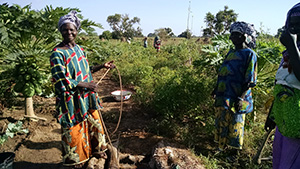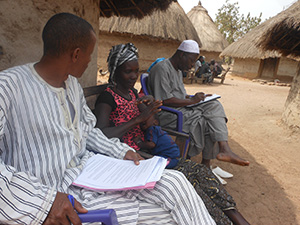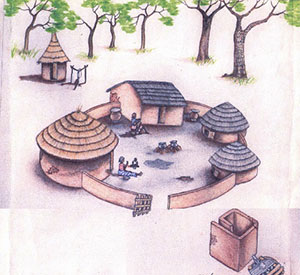A Day in the Life of a 1,000 Day Household - Asia
This video was screened at the Multi-Sectoral Nutrition Strategy Global Learning and Evidence Exchange, Asia event.
This video was screened at the Multi-Sectoral Nutrition Strategy Global Learning and Evidence Exchange, Asia event.
Germany’s Federal Ministry of Food and Agriculture (BMEL) invited SPRING/Bangladesh to present on Farmer Nutrition Schools and its experience towards improved household nutrition at the Policies against Hunger XII conference. Hosted by BMEL, the conference took place from June 22-24, 2016, and brought together 350 high-level participants from across the globe to address key aspects of food security and nutrition.
To draw leaders’ attention to the problem of stunting and their role in improving young children’s nutrition outcomes, SPRING/Ghana produced a 24-minute advocacy video. The video explores the extent of the problem of stunting in northern Ghana, describes what can be done by leaders and household heads to improve nutritional outcomes during a child’s first 1,000 days, and features leaders in northern Ghana who are working to influence their communities (and particularly male heads of households) to take action for a brighter future.

SPRING/Mali officially launched in December 2014 with the support of our lead implementing partner, Helen Keller International (HKI).
The Chicago Council on Global Affairs, May 2016

In West Africa, understanding the local context is an important first step towards building more resilient communities to mitigate the impact of the Ebola emergency on food security and nutrition.
This video was screened at the Multi-Sectoral Nutrition Strategy Global Learning and Evidence Exchange, West Africa event.
 In tandem with the Kyrgyz Association of Village Health Committees, SPRING works through an existing network of “Community Activists,” the primary infrastructure in many communities for awareness raising and the dissemination of social messages. SPRING orients the Activists on a different nutrition-related theme (e.g.
In tandem with the Kyrgyz Association of Village Health Committees, SPRING works through an existing network of “Community Activists,” the primary infrastructure in many communities for awareness raising and the dissemination of social messages. SPRING orients the Activists on a different nutrition-related theme (e.g.
Wasila does not feel well, so her mother-in-law and husband take her to the health center, where she learns that she is one-month pregnant. The health worker advises her on practices she should adopt during pregnancy. She explains that her baby’s first 1,000 days have started, the period from the first day of pregnancy to the child’s second birthday. Wasila advises a friend to go to the health center to learn about the 1,000 days as well.

In Ghana, the SPRING 1,000 day household approach targets nutrition improvements to pregnant women and children 2 years of age and younger, paving a clear impact pathway for each activity.